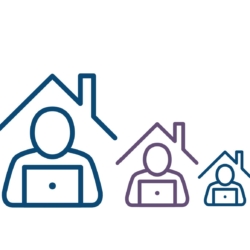To provide the best experiences, we use technologies like cookies to store and/or access device information. Consenting to these technologies will allow us to process data such as browsing behaviour or unique IDs on this site. Not consenting or withdrawing consent, may adversely affect certain features and functions.
The technical storage or access is strictly necessary for the legitimate purpose of enabling the use of a specific service explicitly requested by the subscriber or user, or for the sole purpose of carrying out the transmission of a communication over an electronic communications network.
The technical storage or access is necessary for the legitimate purpose of storing preferences that are not requested by the subscriber or user.
The technical storage or access that is used exclusively for statistical purposes.
The technical storage or access that is used exclusively for anonymous statistical purposes. Without a subpoena, voluntary compliance on the part of your Internet Service Provider, or additional records from a third party, information stored or retrieved for this purpose alone cannot usually be used to identify you.
The technical storage or access is required to create user profiles to send advertising, or to track the user on a website or across several websites for similar marketing purposes.
 The latest edition of the Women in the Workplace survey from the U.S. Green Building Council (USGBC) claims working women across the green building industry are facing historic challenges in the wake of the COVID-19 crisis. Of nearly 500 women surveyed, 86 percent are feeling supported by employers, yet nearly 90 percent note they are still facing challenges when it comes to financial, familial and professional responsibilities. (more…)
The latest edition of the Women in the Workplace survey from the U.S. Green Building Council (USGBC) claims working women across the green building industry are facing historic challenges in the wake of the COVID-19 crisis. Of nearly 500 women surveyed, 86 percent are feeling supported by employers, yet nearly 90 percent note they are still facing challenges when it comes to financial, familial and professional responsibilities. (more…)






 A new survey from
A new survey from 
 A new survey by UK job board
A new survey by UK job board 
 New research by
New research by 
 Research by employee benefits provider
Research by employee benefits provider 








 New research claims that more than three quarters of men who live alone feel isolated while they’re working from home and two fifths of 18-30 year olds feel their mental health has deteriorated. This latest research from The Institute of Leadership & Management
New research claims that more than three quarters of men who live alone feel isolated while they’re working from home and two fifths of 18-30 year olds feel their mental health has deteriorated. This latest research from The Institute of Leadership & Management 
 New figures published today claim that more than 9 in 10 working parents and carers surveyed by work-life balance charity
New figures published today claim that more than 9 in 10 working parents and carers surveyed by work-life balance charity 








